WORLD SPEAKS WITH A UNITED VOICE: WE SUPPORT PRESIDENT BASHAR AL ASSAD AND SYRIA
MOSCOW, BUENOS AIRES, BUCHAREST, BRUSSELS, BEIRUT, DAMASCUS, (SANA) – Vladimir Zhirinovsky, Russian Duma Deputy Speaker, voiced Russia’s dismay at bids of foreign interference in Syria’s internal affairs.
In press statements aired yesterday by the Syrian Satellite TV, Zhirinovsky rejected foreign interference in the Syrian affairs as ‘unacceptable’ aiming to destabilize Syria.
Zhirinovsky reiterated Russia’s stand by Syria blasting western powers’ attempts to weaken the Arab World as to continue exploiting Arabs’ resources.
For his part, Leonid Ivashov, President of Geopolitical Affairs Academy in Moscow, pointed out that the targeting of Syria is to deny it the continuation of its development as an independent prosperous country.
Semen Bagdasarov, a Duma member, described the events taking place in Syria as a revenge by the USA and Israel against Syria, who defeated the US prejudiced schemes and plots in the Middle East.
In Buenos Aires, Argentine, Fia-Arab Organization, underscored full solidarity with Syria against the conspiracy targeting its security and stability.
In a statement, Fia-Arab Organization said that the foreign conspiracy, behind which the American Imperialism and Zionism stand, against Syria’s stability and security would also mean the destabilization of Lebanon, Palestine and other neighboring states.
In Lebanon, Kamal al-Khair, President of the National Center in North Lebanon, described the ongoing events in Syria as a ‘political vengeance’ and as a ‘political struggle’ because of the Syrian pan-Arab nationalist and resistance stances.
Abdul al-Rahim Mourad, President of the Unity Party in Lebanon, asserted that Syria under the leadership of President Bashar al-Assad would foil the foreign conspiracy being batched against it.
General Jamil Al-Sayed, former General Director of Lebanese Security, asserted that Syria’s possession of many pivotal cards at the regional level have angered many Arab and international powers, asserting that Syria would defeat the conspiracies and plots hatched against it.
Bucharest, (SANA)-The European Council on International Relations and the International Relations and Economic Cooperation Institute expressed support and solidarity with Syria against the incitement campaign targeting it, which includes all forms of lies, fact-twisting and manipulation of the events which took place in Syria.
This came in a message conveyed by President of the European Council on International Relations and Director of Institute of International Relations and Economic Cooperation Anton Caragea to the Syrian Embassy in Bucharest.
The message included a statement issued at the conclusion of an extraordinary meeting held jointly by the Council and the Institute board of directors on April 27-28, which sends a strong message of support to the Syrian people and its national unity.
In their capacity as representatives of the intellectual Romanian society, the participants voiced full support to the Syrian leadership and people and backing for Syria’s unity, as they condemned vandalism acts in some Syrian provinces, describing the interference of the Syrian security forces as legitimate and legal.
The statement lambasted media which stirs chaos, vandalism and killing in Syria, stressing that the Syrian leadership is committed to the process of reforms and that President Bashar al-Assad enjoys trust and represents the Syrian people’s unity.
The statement concluded by reiterating standing by Syria and rejecting interference in its internal affairs, affirming that ”Romania’s support to Syria amounts to its support to its own people.”
KHALED MASHAAL GETS A HERO TREATMENT AT MEETING WITH RUSSIAN PRESIDENT DMITRY MEDVEDEV
HAMAS- THE DEMOCRATIC FREEDOM MOVEMENT OF PALESTINE MEETS RUSSIAN PRESIDENT
Russia has rebuffed Israel’s criticism of President Dmitry Medvedev’s meeting with the leader of the Palestinian group Hamas.”Hamas is not an artificial structure,” Andrei Nesterenko, the Russian foreign ministry spokesman, said in a statement on Thursday.
“It is a movement that draws on the trust and sympathy of a large number of Palestinians. We have regular contacts with this movement. “It is known that all other participants of the Middle East quartet are also in some sort of contact with Hamas leadership, although for some unknown reason they are shy to publicly admit it,” Nesterenko said.
Sergei Lavrov, the Russian foreign minister, on Thursday briefed Mahmoud Abbas, the Palestinian president, on the meeting in Damascus, the Syrian capital. The Russian president urged Hamas to work on a reconciliation deal with its rival Fatah, and insisted that “no one” should be excluded from the Middle East peace process, according to his spokeswoman.
“Issues related to the re-establishment of Palestinian unity as an indispensable condition for the success of Israeli-Palestinian negotiations were at the centre of the meeting,” Nesterenko said.Medvedev met Meshaal following a meeting with Bashar al-Assad, the Syrian president.
Russia is a member of the so-called Middle East Quartet, but unlike its three partners it has long urged immediate engagement with Hamas.This meeting is a strong support for Hamas, the democratic movement for freedom in Palestine and one of the most important actors in the fight for freedom and democracy in the region.
Moldavia: between revolution and geopolitics.
Moldavia: between revolution and geopolitics.
In the last days the capital of Republic of Moldavia was the scene of several violent manifestations remembering the velvet revolutions of 1989 against communist dictatorship in Eastern Europe. Whatever will be the outcome of these popular actions we must remember the geopolitical destiny of Republic of Moldavia, destiny that this popular outcry tries to change.
Republic of Moldavia: Stalin`s child.
If it is today to find in Europe a product of Stalin`s vision still surviving this will surely be Republic of Moldavia. Created in 1924 on the left bank of the river Nistru this republic was in Stalin opinion a window for the URSS to keep open the option of the long march to Istanbul. Ti this aimed the so called Moldavian republic was at that time only an autonomous republic placed under the control of the Soviet Republic of Ukraine and the center for the greatest soviet army, Ukraine south who was destined to conquer Romania, Bulgaria and to open the road for the Soviet Army to Istanbul, the city of the tsars as the Russians know it. In 1944 when the soviet army was wining the Second World War Stalin decided to restructure the so called autonomous republic and to make it a Soviet Republic with capital in Kishinev and offered as territory the ancient Romanian province of Bessarabia.
The geopolitical idea of the new Republic of Moldavia was unchanged: in Moldavia in the cold war years was stationed the greatest soviet army: 14-th army from Tiraspol with the same military objectives: conquering Turkey and the Middle East. Also in republic of Moldavia was the greatest military supervision center, telecommunication interceptor and the greatest factory for short range rocket and military equipment.
Republic of Moldavia : Russia window to Balkans.
When the Soviet Union collapsed the Russian Federation decided to maintained the control of this territory from various reasons: while Republic of Moldavia was under Russian control the hope to reconstruct the southern part of the Soviet Empire was still alive.
Republic of Moldavia could be a factor to threat Romania and to keep a window for Balkans and a placed to surround Ukraine and to stop any attempt of Kiev to brake the Russian encircle and to create a European and NATO destiny for Ukraine. Russia concentrated all his efforts in 1991 and 1992 to maintained Republic of Moldavia in his sphere of influence; he organized a rebellion with the support of 14-th Army in Transnistria, a small province of Republic of Moldavia at the Ukraine border. In Transnistria where located the military factory and the barracks of the 14-th Army that Russia was not eager to loose in the favor of the new state.
Finally after the Transnistria war in 1991-1992 and the Russian military direct intervention a coup d’état was stage at Kishinev and the democratic prime minister at that time , Mircea Druc was deposed and forced to fled to exile. From that time Russia supported puppets regime in the Republic of Moldova that signed the joining of Moldavia to Community of Independent State, signed treaty with Russia and created an economy dependent only on the Russian market and support. All this time Russia did not accept to evacuate Transnistria and to support the integration of the rebel province into Moldavia ( the scenario of Abkhazia in Georgia ) and created in Transnistria a mafia state supported by the illegal arm supplies to all countries in war from Zaire to Rwanda and Saddam Hussein`s Iraq.
Republic of Moldavia remained under Russian control even in 2004/2005 when the region was under the orange revolution time that tried to orient this space towards US and European Union. But the last two years 2007/2008 changed this landscape of compliance with Russian federation political views.
Republic of Moldavia: wind of change ?
Many factors had contributed to this: rapid deterioration of economic situation, decrees in wage and pension values, growing of unemployment and Russian reduction of subsidies. The final blow to Moldavian economy came in January when the Russia-Ukraine gas row practically produced the collapse of Moldavian budget. Not only economy has failed in Moldavia, but also for the first time in the last 20 years a real European implication in this area started to be created, E.U. missions, and investments created a feeling that finally Russia has a geopolitical counterpart and a new vision for Moldavia could be possible. Finally the Romanian economy rapid development created a magnet for Moldavia population who is Romanian as origin, language and history and started to hope that a Romanian support for a European Union enlargement with Moldavia could be possible. This new political landscape made the political power at Kishinev even more hard-line: Russian relation where tightened, the border with Romania was shut and Romanian media banned from Moldavia. In this atmosphere of cold war the communist power at Kishinev was sure that he will win the election.
The fact that Republic of Moldavia is not meeting any democratic criteria is not a surprise to anyone. The National TV and Radio are under the state control, the opposition is not aloud participation of state media, the newspapers are controlled, and the economy is under state regulation and local mafia control. The April 5-th elections were held after two month of violent verbal assaults on the opposition from the government part, massive pressure on opposition media, banning of opposition gathering and the long list of irregularity could go on forever. Finally in the election day 35% percent of the population of Moldavia decided to go on holiday and voted on supplementary list ( without paper control) which is strange generally in the world this number is no greater than 2% , but the population of Moldavia ,loves traveling on election day it seemed. No surprise, in this condition the Communist Party claimed victory with 50% percent of the electoral votes, even better that his on prediction. This was a mistake, the opposition was ready to accept a negation for power and a power sharing deal for a slow democratization but this result showed that Communist Party wanted to rule alone and no compromise was possible. This sparked the popular discontent and lead to massive demonstration in Moldavian capital: Kishinev.
No chance for Moldavia.
Unfortunately this popular action has little chance to change anything: US is having an appeasement approach towards Russia and Barrack Obama is not Bush in august war in Georgia. So no chance of a US support operation for a late orange revolution. European Union is also eager to strike economical deals and energy deals with Russia not to further antagonized the power of Russia. Finally Romania is crippled by economic problems, a president in a corruption scandal and seeking reelection in much contested election at the end of the year. In this political landscape the geopolitical destiny of Republic of Moldavia will remained the same, in the orbit of Russian action.
Professor Anton Caragea


 A PERFECT FRAGRANCE! DALI HAUTE PARFUMERIE-WORLD FAVORITE PERFUME FOR 2017. This is a unique Collection of five perfumes inspired by the jewelry creations of Salvador Dali, which perfectly represent the genius of this extraordinary artist.
A PERFECT FRAGRANCE! DALI HAUTE PARFUMERIE-WORLD FAVORITE PERFUME FOR 2017. This is a unique Collection of five perfumes inspired by the jewelry creations of Salvador Dali, which perfectly represent the genius of this extraordinary artist. ASTANA-CAPITAL OF THE FUTURE. HOST OF EXPO 2017
ASTANA-CAPITAL OF THE FUTURE. HOST OF EXPO 2017 BEST FASHION CREATOR-GENTLEMEN'S CORNER
BEST FASHION CREATOR-GENTLEMEN'S CORNER Blackseanews
Blackseanews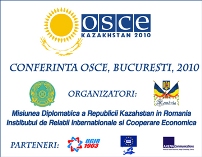 Bucharest Conference on OSCE 2010. A decisive year for Europe. Kazakhstan Presidency
Bucharest Conference on OSCE 2010. A decisive year for Europe. Kazakhstan Presidency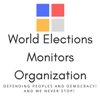 CAMBODIA FREE AND FAIR ELECTIONS
CAMBODIA FREE AND FAIR ELECTIONS CASA PANCIU
CASA PANCIU CONFERENCE ON PEACE AND SECURITY IN EUROPE AND ASIA
CONFERENCE ON PEACE AND SECURITY IN EUROPE AND ASIA COTNARI-HOUSE OF WINES
COTNARI-HOUSE OF WINES Diplomat Club
Diplomat Club DIRECT DE LA FERMA
DIRECT DE LA FERMA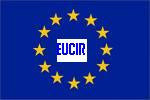 European Council on International Relation
European Council on International Relation EUROPEAN JOURNAL OF TOURISM
EUROPEAN JOURNAL OF TOURISM EUROPEAN TOURISM AWARDS
EUROPEAN TOURISM AWARDS EUROPEAN UNION COUNCIL ON TOURISM AND TRADE
EUROPEAN UNION COUNCIL ON TOURISM AND TRADE Institute of International Relations and Economic Cooperation
Institute of International Relations and Economic Cooperation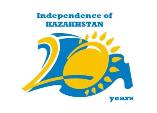 KAZAKHSTAN 20 YEARS OF INDEPENDENCE. PEACE AND CONSTRUCTION
KAZAKHSTAN 20 YEARS OF INDEPENDENCE. PEACE AND CONSTRUCTION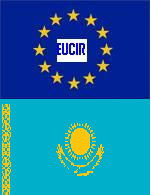 KAZAKHSTAN PRESIDENTIAL ELECTIONS 2011. EUROPEAN MONITORING MISSION
KAZAKHSTAN PRESIDENTIAL ELECTIONS 2011. EUROPEAN MONITORING MISSION KAZAKHSTAN-THE LEOPARD OF CENTRAL ASIA by professor Dr. Anton Caragea
KAZAKHSTAN-THE LEOPARD OF CENTRAL ASIA by professor Dr. Anton Caragea OSCE. KAZAKHSTAN PRESIDENCY. ROMANIAN SUPPORT BY PRESIDENT OF CONFERENCE ON OSCE-ANTON CARAGEA
OSCE. KAZAKHSTAN PRESIDENCY. ROMANIAN SUPPORT BY PRESIDENT OF CONFERENCE ON OSCE-ANTON CARAGEA ROMANIAN DIPLOMATIC BULLETIN
ROMANIAN DIPLOMATIC BULLETIN Sfantul si Cultul sfintilor
Sfantul si Cultul sfintilor Thinking Europe- bestseller
Thinking Europe- bestseller WILD TIME
WILD TIME WORLD BEST TOURIST DESTINATION
WORLD BEST TOURIST DESTINATION WORLD CAPITAL OF CULTURE
WORLD CAPITAL OF CULTURE WORLD TOURISM NEWS
WORLD TOURISM NEWS